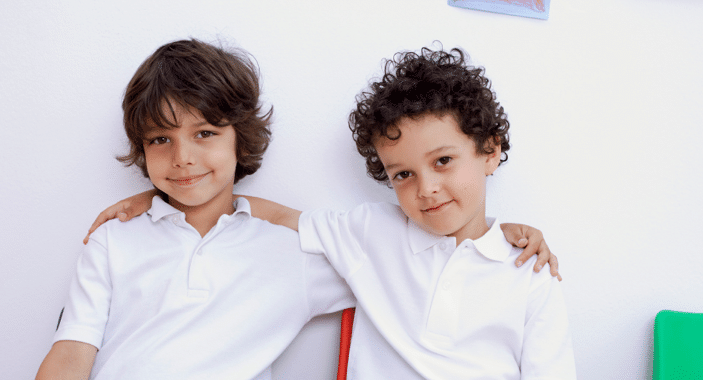How to Help Your Child Make Friends
Back to school can be an exciting but also daunting time! For some it can be an anxious time and having difficulty making friends can cause school to be frightening and worrisome. It is heartbreaking to hear your child say “nobody wants to play with me” or “everyone hates me”. Unfortunately, we can’t make friendships for our children, but we can provide them with tools, confidence, and ideas. Here are some ideas to help your children as they seek to make new friendships in the coming year.
Take time to observe and understand how your child socialises. Watch how your child interacts with others. Does your child act different than at home? Is your child showing anxiety interacting only with children or with adults as well? Is it interacting one-on-one or big groups or both? Is your child an observer and not a participator? Does your child have difficulty starting or making conversation? Does your child have perfectionist tendencies and shy away from interacting thinking they’re not good enough? Observation can help you know where to start and where to best focus your attention. You can find out what skills need developing and how you can best help.
Your child doesn’t need an entourage or to be one of the most popular kids at school. One to three good friends can more than suffice for most children. If your child is shy or introverted, tell them it’s okay to hang back and observe – otherwise, putting pressure on your child to constantly participate can cause their anxiety to increase. Teach your child to be kind and polite to all but don’t pressure them to be friends with everyone. Don’t push them to be something they’re not. It is harmful to your child to highlight what you think they lack. Also avoid comparing them to yourself, siblings or other children.
Role play and practice starting conversations at home. If your child finds it difficult to start conversations, sit down and practice at home. Discuss what topics interest they might talk about with other kids. Test different options and model simple instructions. Role play approaching an existing group of children or a single child, e.g. “Hi. I’m Sebastian. Do you want to play tag with us?” and “Hi. Is it okay if I play ball with you?” Explain that friends expect the same good behaviour, so emphasize sharing, respecting personal space being honest and showing kindness. As a parent you should also be careful to always demonstrate good social behaviour yourself when talking to family members and your own friends. Remember to praise your child when you see them working on developing these skills.
Get the ball rolling. It might be difficult but try to get your child to choose a few classmates he thinks might be fun to play with. Try an organise an after school or after sport get together at the park or go for a treat and see if they can spark a connection. Get to know parents as often, things like birthday and play-date invitations have more to do with parents than with children. Many parents will not allow their children to interact with another child outside of school if they are not familiar with the family.
Avoid negative discussion. At pickup, avoid questions like, “Did you sit alone at lunch again? ” or “Did you stay in the classroom again at recess?” It shows that you are anticipating that they’ve had a bad day. If your child is shy and introverted, they are going to be more sensitive to these questions and become more withdrawn. As hard as it is to hear try and stay balanced, supportive and empathetic but try and keep it in perspective – all kids go through hard times with friendships and it’s a part of life. Always be positive and show strength, not anxiety with your child.
Encourage your child to seek out other children and classmates with common interests. Teach them to seek out clues that indicate interests (i.e. the books or comics they are reading etc.) Children may feel more confident approaching a child with similar interests. With a common interest, you almost always have a way to break the ice or join a social interaction.
Help your child build their confidence and self-esteem. If your child is shy or lacks self-esteem, look for small, intimate settings where they can practice social skills in a more manageable situation. Also make them feel cherished and valued just as they are. Encourage activities that your child likes to do outside of school and make time to provide opportunities for these hobbies. This will provide a strong internal sense of self by providing opportunities to grow e.g. karate, surf lessons, cooking. This helps boost their confidence and self-esteem.
Talk with the teacher. The teacher may know or other children in a similar situation (you would be surprised how this can go unnoticed by your child) and try and talk to them to bring them together. The teacher can also seat your child next to like-minded children or assign friendlier students to work in group activities in the classroom. Teachers can most times give a better sense of your child’s interactions and can accurately suggest more positive classmates for after-school playdates. It’s also a good way to help your child develop self-confidence. Also ask the teacher to give your child responsibility in the classroom. If your child feels more included, integrated and important they can be more likely to come out of their shell.
Hopefully these tips will help our wonderfully different children establish and maintain the friendships that work for them.







